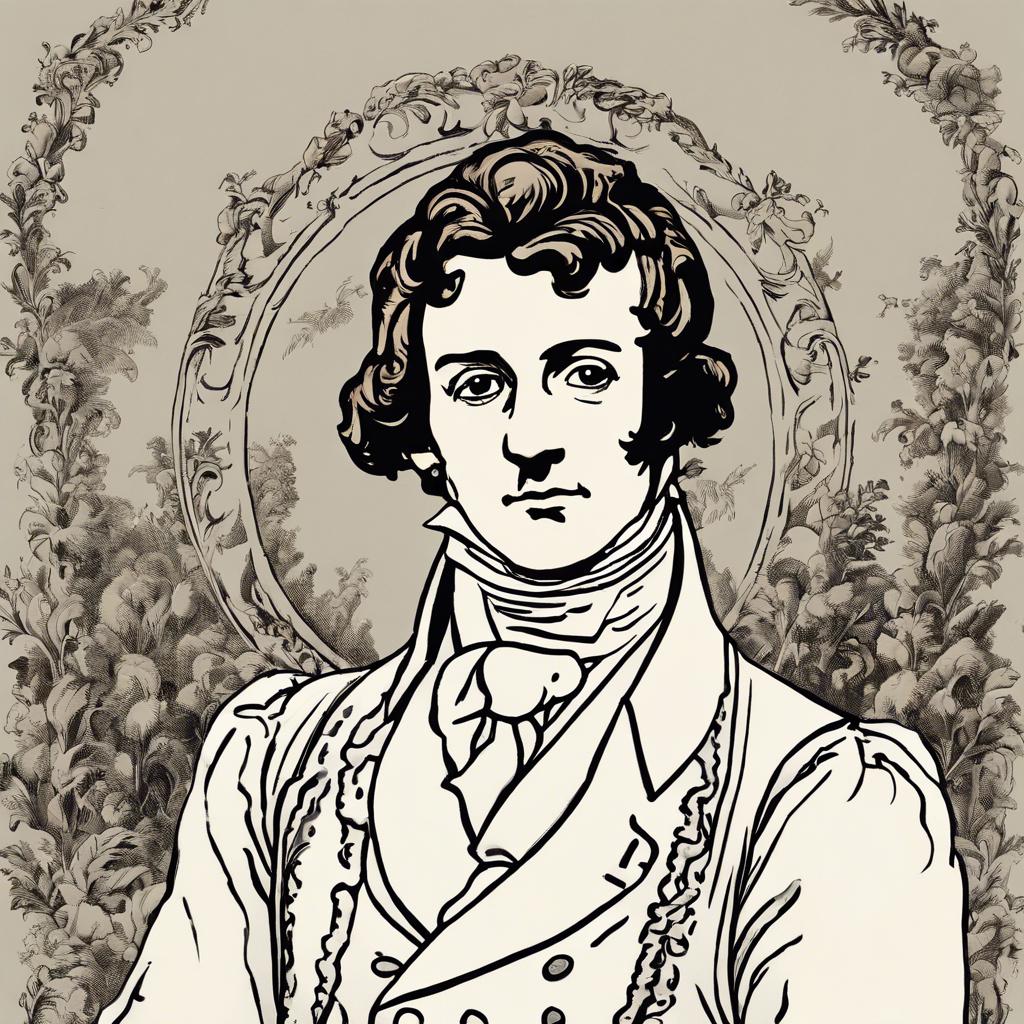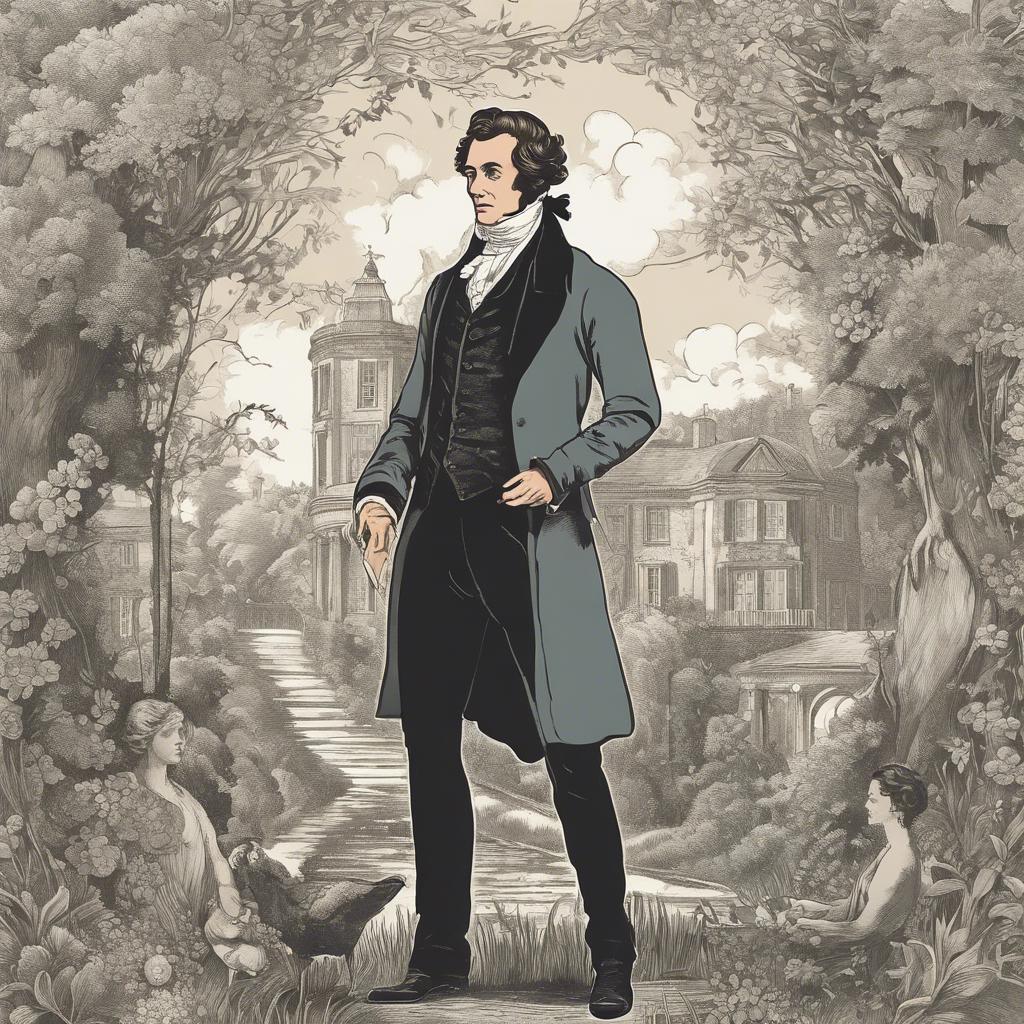In Jane Austen’s timeless classic “Pride and Prejudice,” the character of Mr. Collins serves as a representative of the social norms and conventions of early 19th-century England. Through his interactions with the Bennet family and his pursuit of a suitable marriage, Mr. Collins provides a window into the class dynamics and expectations of the era. In this article, we will delve into the complexities of Mr. Collins’s character, examining how his actions and beliefs reflect the prevailing attitudes of the time.
Step Into the World of Cheryl Bolen
Dive into the enchanting stories of love, intrigue, and elegance set in the Regency Era. Cheryl Bolen's novels offer timeless romance and captivating tales that will leave you wanting more.
Explore Cheryl Bolen's Books Now
Background of Mr. Collins in Pride and Prejudice
In Jane Austen’s novel “Pride and Prejudice,” Mr. Collins is portrayed as a character who values social status and wealth above all else. As the cousin of Mr. Bennet, he is set to inherit Longbourn estate upon Mr. Bennet’s death, making him a very eligible bachelor in the eyes of Mrs. Bennet.
Mr. Collins is a clergyman, having obtained his position through patronage. Despite his occupation, he is more concerned with impressing others with his connections to Lady Catherine de Bourgh and his obsequious behavior towards those of higher social standing. This can be seen in his proposal to Elizabeth Bennet, which is more about securing a wife of respectable lineage than genuine affection.
In addition to his preoccupation with social standing, Mr. Collins is also characterized by his pomposity and lack of self-awareness. His long-winded speeches and condescending attitude make him a source of comic relief in the novel, as he fails to realize how absurd he appears to those around him. Mr. Collins serves as a satirical representation of the social norms and values of the time, highlighting the absurdity and superficiality of the upper class.
Analysis of Mr. Collins Character Traits and Behavior
Mr. Collins is a character in Jane Austen’s classic novel, Pride and Prejudice, who exhibits a unique set of personality traits and behaviors that make him both memorable and, at times, comical.
One of Mr. Collins’ most striking characteristics is his obsequious nature. He constantly seeks the approval and validation of those above him in social rank, particularly Lady Catherine de Bourgh. This sycophantic behavior is evident in everything from his exaggerated flattery to his overbearing attempts to ingratiate himself with others.
In addition to his obsequiousness, Mr. Collins is also portrayed as a pompous and self-important individual. He possesses a high opinion of himself and his own status, despite being a clergyman of humble origins. This combination of arrogance and insecurity leads Mr. Collins to make numerous social gaffes and display a lack of self-awareness that provides much of the novel’s humor.
Impact of Mr. Collins on Other Characters and Plot Development
In Jane Austen’s novel Pride and Prejudice, Mr. Collins plays a significant role in influencing the other characters and driving the plot forward. His presence in the story has a profound impact on the dynamics between the characters and the development of the storyline.
One of the primary ways in which Mr. Collins affects the other characters is through his comical personality and eccentric behavior. His pompous and self-important nature serves as a foil to the more refined and sensible characters like Elizabeth Bennet and Mr. Darcy. This contrast creates tension and conflict, leading to entertaining and engaging interactions throughout the novel.
Moreover, Mr. Collins’s proposal to Elizabeth not only showcases his clueless and absurd nature but also sets in motion a chain of events that ultimately shape the course of the plot. His proposal and subsequent rejection by Elizabeth sparks jealousy in other characters, reveals underlying motivations, and brings to light the different social hierarchies at play in the story.
Recommendations for Understanding and Interpreting Mr. Collins in Pride and Prejudice
In Jane Austen’s “Pride and Prejudice,” Mr. Collins is a character that is both comical and cringeworthy. To fully understand and interpret Mr. Collins, it is important to consider the following recommendations:
Firstly, pay attention to Mr. Collins’ social status and background. As a clergyman and the distant cousin of Mr. Bennet, he is portrayed as a sycophantic and obsequious character who constantly seeks to impress those around him, especially his patron, Lady Catherine de Bourgh. His exaggerated flattery and lack of self-awareness make him both amusing and annoying to the other characters in the novel.
Secondly, analyze Mr. Collins’ interactions with other characters, particularly his awkward courtship of Elizabeth Bennet. His proposal to Elizabeth is a prime example of his lack of social graces and his misguided belief in his own charms. By examining his interactions with Elizabeth and other characters, readers can gain a deeper understanding of Mr. Collins’ personality and motivations.
Future Outlook
Mr. Collins from Jane Austen’s Pride and Prejudice is a character that exemplifies the societal norms and values of the Regency era. His obsequious nature, self-important demeanor, and comical antics provide a stark contrast to the more principled and refined characters in the novel. Through his portrayal, Austen shines a light on the absurdities and shortcomings of the upper-class society of her time. Mr. Collins serves as a reminder of the importance of integrity, authenticity, and self-awareness in a world where appearances often overshadow substance. As we continue to appreciate Austen’s timeless work, let us not forget the unforgettable character of Mr. Collins and the enduring lessons he imparts.


